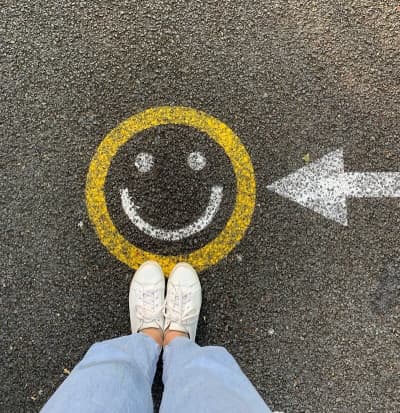Can we believe in the above heading? How does it make us feel? Is it true?
From the moment of our birth, we're on a quest for happiness. In those first days of our lives it may take no more than mothers' milk to satisfy us, but our needs and desires multiply as we age.
For some, happiness is having a nice family, a good job, excellent health, lots of money and the love and admiration of others, but pain still strikes even under the best of circumstances. We can think of many 'rich and successful' people who have died alone and miserable.
Circumstances are particular to each individual; one marriage may fall apart, another couple could have a child with a developmental disability and as we know even recently in the UK, others may lose everything in a flood.
People differ from each other in the amount of suffering they experience over a lifetime, or the type of suffering, and pain and suffering are common threads that unite all of humanity.
Pain creates a conflict between the way things are and the way we'd like them to be and that can, depending on our response, make our lives less than satisfactory.
The problem with avoiding pain is that it's just not possible to do, and it often gets worse with our increased efforts to try. For example eating to avoid stress can cause obesity, and working obsessively to overcome low self-esteem can land folk in an early grave.
So how do we cope with the inevitable pain and avoid suffering? Here is a formula that links the two:
Pain x resistance = suffering
It is the resistance and non-acceptance of emotional pain at times that can lead to suffering; the inability to live in the moment. Sometimes we want to find a 'cure' for our emotional pain and instead of that cure it is 'care' that will help. Cure is what we try to do when we have some way to fix a problem; care is what we can still do when all efforts at curing have failed. It's like attending to a dying person; we let go of the struggle and tenderly join the experience of dying.
Paradoxically then, care can lead to cure.
This, I know, is a challenging concept as for some if your pain is too real and present, even physical at times.
First care for yourself, practicing self-compassion by giving the same kind of kindness to ourselves that we would give to others. Mindfulness – being in the moment, a sense of freedom, of being connected without judging or resisting will help.
When we're mindful we're less likely to want life to be other than what it is, at least for the moment.
How mindful can you be today – letting go of any resistance to minimise the suffering from any pain that you are experiencing?
Les
A Moodscope member.



Comments
You need to be Logged In and a Moodscope Subscriber to Comment and Read Comments